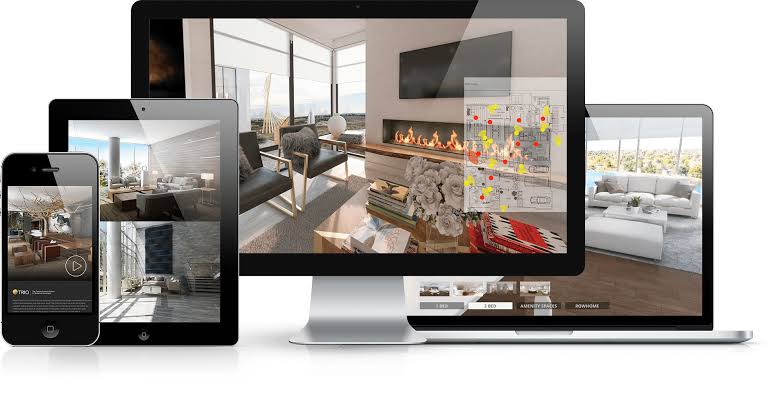Key Takeaways:
- Virtual tours vastly improve interaction with remote locations, enhancing their accessibility.
- They are an integral marketing tool in real estate, influencing buying decisions and streamlining the sales process.
- The innovation of virtual experiences revolutionizes travel planning, generating excitement and informed choices among tourists.
- Educational institutions leverage virtual tours for remote campus visits, fostering student engagement and increasing global reach.
Introduction
In an increasingly digital world, one of the standout innovations has been the rise of virtual tours. These immersive experiences, facilitated by pioneering 360 virtual tour software, reshape how we view and engage with spaces. Across industries such as real estate, travel, and education, virtual tours have gone from a novel feature to a near-essential element in consumer engagement. Their ability to offer remote, interactive exploration has revolutionized these industries, providing powerful marketing, planning, and education tools. Let’s dive into the transformational impact of virtual tours and explore how they allow businesses to connect with their audiences in unprecedented ways.
The Impact of Virtual Tours on Real Estate
Adopting virtual tours in real estate is revolutionizing how properties are marketed and sold. In an industry where visual appeal is paramount, these tours offer a dynamic and comprehensive view of homes and commercial spaces. Prospective homebuyers can take a digital walkthrough of properties from anywhere worldwide, a feature that has become particularly invaluable when in-person visits are limited. This tool bridges geographical barriers, allowing real estate agents to extend their reach beyond local prospects.
Statistics indicate that real estate listings with virtual tours garner more views and have a higher chance of closing a sale. The benefit transcends just increased engagement; realtors are seeing properties sell more rapidly, as virtual tours provide a more accurate sense of the property than traditional photography ever could. Thus, the virtual tour is pivotal in influencing buying decisions and accelerating the sales cycle.
Revolutionizing the Travel Industry with Virtual Experiences
Travel enthusiasts frequently use online resources to gauge potential destinations, and virtual tours present the perfect tool for pre-trip exploration. They offer a taste of the experience awaiting tourists, helping them to solidify their travel plans and build anticipation. Destinations and service providers with virtual tour capabilities create an edge over competitors by showcasing what they offer and providing an experience even before the actual visit.
Exceptional virtual experiences can lead to actual visits, as they significantly influence travelers’ decision-making processes. They also cater to the needs of those who might not be able to travel, extending the reach of the travel experience to audiences everywhere.
Virtual Tours in Education: A New Horizon for Learning
The field of education has not been untouched by the virtual tour revolution. Educational institutions utilize this technology to showcase their campuses and what they offer to prospective students worldwide. Virtual tours allow students to tour facilities, learn about programs, and get a feel for the campus culture without traveling. This is an invaluable tool for universities, especially in attracting international students who may need more means for an in-person visit but are considering enrolling in overseas programs.
Virtual tours have also proven to be a vital tool during the enrollment process. The ability to virtually visit multiple campuses helps students and parents make informed decisions about their investment in higher education. What used to be an exhausting and costly process of visiting numerous colleges is now facilitated through immersive virtual tours, effectively broadening the horizons for global education.
Creating Immersive Virtual Tours
Creating an engaging virtual tour encompasses more than just panoramic images. It is a craft that entails a keen eye for detail, technical understanding, and the ability to tell a story within a digital landscape. To construct a truly immersive experience, creators of virtual tours must consider user ease of navigation, high-resolution imagery, and the inclusion of interactive elements such as informational hotspots and multimedia. The choice of a robust virtual tour software can arm creators with a suite of tools to bring their visions to life, enabling the crafting of seamless and captivating virtual environments.
The Future Is Virtual: Trends to Watch
Virtual tour technology is poised to become more interactive and immersive by integrating augmented reality (AR) and artificial intelligence (AI). There are predictions that, in the future, virtual tours could offer personalized paths based on the viewer’s preferences, learned through AI. Augmented reality, on the other hand, can enhance virtual tours by overlaying additional, context-specific information, enriching the user’s experience.
For instance, AR could allow potential homebuyers to re-envision spaces in real estate with different furnishings or decorations. Similarly, AI could recommend properties based on the preferences indicated by the user’s interaction with previously viewed tours.
As the integration of virtual tours becomes more advanced and user-friendly, their applications across various industries are expected to grow exponentially. By creating more engaging, informative, and interactive experiences, virtual tours are set to shape the future of how people explore and interact with locations worldwide, marking the beginning of a new era in digital connectivity.

